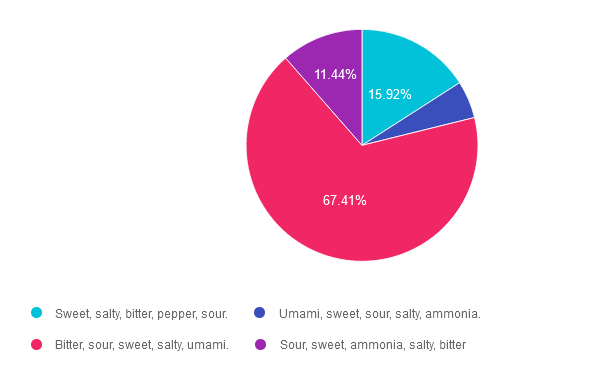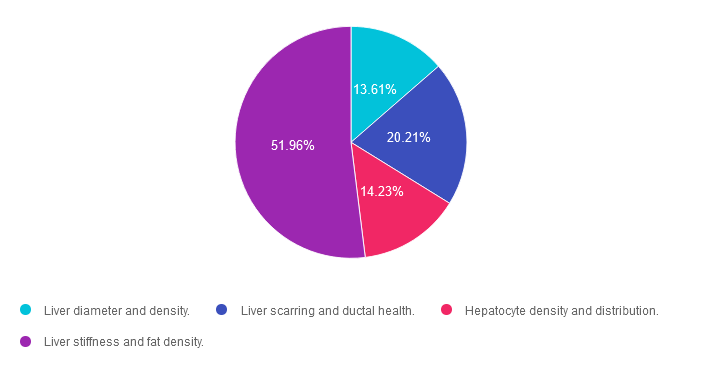Question of the Week | Why do we celebrate World Diabetes Day on Nov 14th?

In 1923, the Nobel prize in physiology or medicine was awarded to Frederick Grant Banting and John James Richard MacLeod “for the discovery of insulin”. 100 years later, we celebrate this life saving discovery each year on November 14th, a day designated as World Diabetes Day.
Why do we celebrate World Diabetes Day on November 14th? Please choose the best answer.
- It was the date the Nobel prize was awarded to Dr. Banting and Dr. MacLeod.
- It signifies the production date of the first vial of insulin.
- It commemorates the opening date of the Banting Museum in Canada.
- It is the birthday of Sir Frederick Banting.
Click Here to Test your Knowledge
FREE Preparing for the CDCES Exam Webinar

This course will transform your test anxiety into calm self-confidence and test-taking readiness.
Preparing for the CDCES Exam Webinar Topics
- Exam requirement updates for 2023.
- Exam eligibility and test format
- Strategies to succeed along with a review of study tips and test-taking tactics.
- We will review sample test questions and the reasoning behind choosing the right answers.
- Learn how to focus your time and prepare to take the CDCES Exam. We provide plenty of sample test questions
Instructor: Beverly Thomassian RN, MPH, CDCES, has been Board Certified in Advanced Diabetes Management for over 20 years. She is an Associate Clinical Professor at UCSF, a working educator, and a nationally recognized diabetes expert. She has a Master’s Degree in Public Health from UCLA, with a focus on behavioral health and education.
All hours earned count toward your CDCES Accreditation Information
Sign up for Diabetes Blog Bytes – we post one daily Blog Byte from Monday to Friday. And of course, Tuesday is our Question of the Week. It’s Informative and FREE! Sign up below!
The use of DES products does not guarantee the successful passage of the CDCES exam. CBDCE does not endorse any preparatory or review materials for the CDCES exam, except for those published by CBDCE.
Nobel Prize Awarded for Discovery of Insulin – 100 Year Celebration
On October 25th, 1923 the Nobel prize in physiology or medicine was awarded to Frederick Grant Banting and John James Richard MacLeod “for the discovery of insulin”. The discovery was made in 1921 i.e., only two years before, which makes the time period between the detection and this prize one of the shortest in the history of the Nobel Prize.
World Diabetes Day Celebrates Dr. Banting’s Birthday and the Discovery of Insulin
Dr. Banting was born on November 14, 1891. That is why we celebrate World Diabetes Day on November 14th.

During a hot summer in 1921, Dr. Banting secured space to test out his theory in the University of Toronto. Along with his colleague, Charles Best, and a bare bones lab, they conducted dozens of experiments on dogs, which ultimately led to the discovery of insulin.
Dr. Banting and Charles Best began their experiments ligating the pancreases of dogs, thinking this would prevent destruction by the digestive pancreatic juices, and then isolating the extract from the islet cells. They then processed the extract from the islet cells and injected this extract they called “insulin” into diabetic dogs. According to an audio Interview with Dr. Best, by July 1921, they had 75 positive examples of insulin lowering blood glucose levels in dogs.

In February 1922, doctor Frederick Banting and biochemist John Macleod published their paper on the successful use of a alcohol based pancreatic extract for normalizing blood glucose levels in a human patient.
Here are some photos of the first insulin bottles produced by the University of Toronto and Eli Lilly.
Soon, word of their discovery got out and the race was on to produce enough insulin to treat the flood of type 1 patients arriving in Toronto to receive this miracle injection.
First Children to Receive Insulin

The first patient to receive insulin was a ‘welfare’ case at Toronto General Hospital – no clinical trial structure to say the least. People from Canada/US flooded into Toronto to receive treatment. Banting struggled with the lack of accessibility of insulin – volume needed and issues of purification.
The earliest patients were “selected”, some youths from Canada/US, some soldiers with diabetes (probably because of Banting’s service in the First World War) and then later some select private patients. During this time they were working hard to increase the volume and continue to improve the purification process. Insulin was available for testing in US, namely through Dr. Elliot Joslin in the late summer 1922.
Dr. Banting – Fun and Interesting Facts

- Sold insulin patent for $1
- Was wounded during the First World War and received the Military Cross
- Youngest Nobel Laureate in Medicine
- First Canadian on the cover of Time Magazine
- Among the last Canadians to receive a knighthood and have the title Sir Frederick Banting
- One of only two “non-Americans” to have a Second World War Liberty Ship named after him (USS Frederick Banting)
- Has as a crater on the Moon named after him (between Apollo 15 & 17 landing sites).
Takes a Team
While Best played a critical and important role, credit must also go to Professor Macleod, from the University of Toronto, who provided the lab space, showed Dr. Banting how to operate on dogs, provided his student Best and suggested they switch from a saline to alcohol to purify the ‘extract’. Dr. Macleod also secured the support of JB Collip, the 4th man on the team and the fist person to purify insulin for human use. Best is also known for pushing Banting to return to the research during a particular dark period of failure.
Want to Learn More About the Dr. Banting?
Historical Insulin Powerpoint Slides – here is a collection of some of my favorite powerpoint slides, depicting the discovery of insulin.
Visit Banting House FaceBook Page
National Diabetes Month
.png?h=459&iar=0&w=1459&hash=E665292742D2BABAECCFA59A56B88D3C)
November kicks off National Diabetes Month, a time to recognize that over 11% of Americans are living with diabetes and over 35% have prediabetes. Since diabetes results from a combination of genetics plus environment, there is a recognition that social determinants of health play a pivotal role in the development of diabetes and its complications. Through advocacy and education, we can inform individuals on best care for diabetes and support them in taking action to improve the health of their communities to prevent future diabetes. We have put together a list of FREE diabetes resources in English and Spanish to share with people living with prediabetes and diabetes. Thank you for your advocacy and belief that we can make a difference. Coach Beverly
All hours earned count toward your CDCES Accreditation Information
Sign up for Diabetes Blog Bytes – we post one daily Blog Byte from Monday to Friday. And of course, Tuesday is our Question of the Week. It’s Informative and FREE! Sign up below!
The use of DES products does not guarantee the successful passage of the CDCES exam. CBDCE does not endorse any preparatory or review materials for the CDCES exam, except for those published by CBDCE.
Upcoming webinars | CDCES Exam Prep Webinar & From the Gut to the Butt – Exploring the GI System

Be a part of our diabetes community while learning about the latest in diabetes care. Plus, Coach Beverly provides an interactive question and answer session at the end of each live webinar.
Preparing for the CDCES Exam? Join us for our FREE Webinar
Airs live on November 14th, 2023, at 11:30 am PT

Join us to get ready to succeed a the CDCES Exam. This course will transform your test anxiety into calm self-confidence and test taking readiness.
We will review sample test questions, and the reasoning behind choosing the right answers.
After registering, you will receive a confirmation email containing information about joining the webinar.
Topics covered include:
- Changes in requirements for 2023
- Exam eligibility and test format
- Strategies to succeed
- Review of study tips and test taking tactics.
Can’t make it live? No worries. We will send post the recorded version to the Online University within 24 hours of the broadcast
Intended Audience: All healthcare professionals & paraprofessionals looking to become CDCES-certified
Instructor: Beverly Thomassian RN, MPH, CDCES, has been Board Certified in Advanced Diabetes Management for over 15 years. She is an Associate Clinical Professor at UCSF, a working educator, and a nationally recognized diabetes expert.
Join the wonderment as we explore the role of our GI System
Now Recorded & Ready to Watch

Coach Bev invites you to join this 60-minute webinar that covers gastrointestinal health from top to bottom. Topics include; fatty liver disease diagnosis and treatment, intestinal complications associated with diabetes, keeping the microbiome healthy, and more. Join us to explore the magnificent wonders of diabetes and the gut.
New content and exciting research findings! Join the wonderment as we explore the impact of our GI System on our health.
Topics covered include:
- From the Mouth to Intestines: Periodontal disease, Gastroparesis, Fatty liver disease, pancreas disorders
- The intestine as an Endocrine Organ & Bacterial Host
- NASH Treatment Options including lifestyle and pharmacotherapy
- State the relationship between gut health, microbiome and diabetes and inflammation
- Describe 3 strategies to get our microbiome back to better health.
Intended Audience: These courses are knowledge-based activities designed for individuals or groups of diabetes educators, including RNs, RDs, Pharmacists, Nurse Practitioners, Clinical Nurse Specialists, Physician Assistants, and other health care providers interested in enhancing their diabetes and microbiome knowledge
Instructor: Beverly Thomassian RN, MPH, CDCES, BC-ADM is a working diabetes specialist and a nationally recognized diabetes expert.
Two registration options
Enroll in our entire Level 4 | Advanced & Specialty Topic Courses All courses air at 11:30 a.m. (PST)
All hours earned count toward your CDCES Accreditation Information
Can’t make it live? No worries. We will send post the recorded version to the Online University within 24 hours of the broadcast
Sign up for Diabetes Blog Bytes – we post one daily Blog Byte from Monday to Friday. And of course, Tuesday is our Question of the Week. It’s Informative and FREE! Sign up below!
The use of DES products does not guarantee the successful passage of the CDCES exam. CBDCE does not endorse any preparatory or review materials for the CDCES exam, except for those published by CBDCE.
Rationale of the Week | What are the 5 confirmed Tongue Tastes?

For last week’s practice question, we quizzed participants on the 5 different tongue tastes. 67% of respondents chose the best answer. We want to clarify and share this important information, so you can pass it on to people living with diabetes and your colleagues, plus prepare for exam success!
Before we start though, if you don’t want any spoilers and haven’t tried the question yet, you can answer it below: Answer Question
Question: JR thinks that their ability to taste food has diminished recently. They ask you, what are the five confirmed basic tastes of the tongue?
Which of the following lists describes the best answer?
Answer Choices:
- Sweet, salty, bitter, pepper, sour.
- Umami, sweet, sour, salty, ammonia.
- Bitter, sour, sweet, salty, umami.
- Sour, sweet, ammonia, salty, bitter

Getting to the Best Answer
If you are thinking about taking the certification exam, this practice test question will set you up for success. Test writers anticipate possible answers based on the details in the question. They will wave those “juicy answers” right under your nose. Your job is to weed through the particulars, pluck out the most important elements and choose the BEST answer.
Answer 1 is incorrect. 15.92% chose this answer. “Sweet, salty, bitter, pepper, sour.” This answer is really close, however there are no specific receptors on the tongue to detect the flavor pepper.
Answer 2 is incorrect. 5.22% of you chose this answer. “Umami, sweet, sour, salty, ammonia.” This answer is really close, however, ammonia is not a confirmed flavor and this list is missing the flavor, bitter.
Answer 3 is correct. About 67.41% of respondents chose this. “Bitter, sour, sweet, salty, umami.” YES, these are the 5 confirmed tastes and one more taste might be added to list, ammonium chloride. According to an article in Neuroscience News, “The tongue’s response to ammonium chloride, a component in some candies, may indicate a sixth basic taste. The study illuminated that OTOP1, a protein receptor that signals sour taste, also responds notably to ammonium chloride.”
Finally, Answer 4 is incorrect. 11.44% chose this answer. “Sour, sweet, ammonia, salty, bitter” This answer is really close, however, ammonia is not a confirmed flavor and this list is missing the flavor, umami.
We hope you appreciate this week’s rationale! Thank you so much for taking the time to answer our Question of the Week and participate in this fun learning activity!
Want to learn more about the GI System and Diabetes?
Exploring the GI System – From the Gut to the Butt | FREE Webinar
Now Recorded & Ready to Watch

Coach Bev invites you to join this 60 minute webinar that covers gastrointestinal health from top to bottom. Topics include; fatty liver disease diagnosis and treatment, intestinal complications associated with diabetes, keeping the microbiome healthy, and more. Join us to explore the magnificent wonders of diabetes and the gut.
Getting to the Gut Topics:
- From the Mouth to Intestines: Periodontal disease, Gastroparesis, Fatty liver disease, pancreas disorders
- Intestine as an Endocrine Organ & Bacterial Host
- NASH Treatment Options including lifestyle and pharmacotherapy
- State the relationship between gut health, microbiome and diabetes and inflammation
- Describe 3 strategies to get our microbiome back to better health.
Can’t make it live? No worries. We will send post the recorded version to the Online University within 24 hours of the broadcast
Instructor: Beverly Thomassian RN, MPH, CDCES, has been Board Certified in Advanced Diabetes Management for over 20 years. She is an Associate Clinical Professor at UCSF, a working educator, and a nationally recognized diabetes expert. She has a Master’s Degree in Public Health from UCLA, with a focus on behavioral health and education.
All hours earned count toward your CDCES Accreditation Information
Sign up for Diabetes Blog Bytes – we post one daily Blog Byte from Monday to Friday. And of course, Tuesday is our Question of the Week. It’s Informative and FREE! Sign up below!
The use of DES products does not guarantee the successful passage of the CDCES exam. CBDCE does not endorse any preparatory or review materials for the CDCES exam, except for those published by CBDCE.
November 2023 eNews | Diabetes Month & Ditch NASH for MASH
Happy November

November kicks off National Diabetes Month, a time to recognize that over 11% of Americans are living with diabetes and over 35% have prediabetes. Since diabetes results from a combination of genetics plus environment, there is a recognition that social determinants of health play a pivotal role in the development of diabetes and its complications. We have compiled a list of our favorite FREE diabetes information resources in English and Spanish to empower people with prediabetes and diabetes.
This newsletter also explores why a new sweetener may confuse those who dose insulin based on carb counting. This vital information can help prevent unintended hypoglycemia.
We include a quick primer on new terms that describe liver disease to better reflect the metabolic inflammation and remove the stigma associated with terms like “fatty” and “non-alcoholic.”
Lastly, we welcome Ginger to our team and invite you to test your knowledge with our Question and Rationale of the Week!
Thank you for your advocacy and belief that we can make a difference.
With thanks to all of you,
Coach Beverly and Bryanna
Featured Articles
- Diabetes Month Resources
- New Sweetener Causing Confusion
- Ditch NASH for MASH
- Surviving the Holidays & Diabetes Distress
- Welcome Ginger
- Question of the Week
- Rationale of the Week
- Save the Date: Cyber Monday Sale, Nov. 27th
FREE Webinars & Resources
- CDCES Prep FREE Webinar – Nov. 14th
- From the Gut to the Butt – FREE Webinar – Nov. 16th
- Hyperglycemic Crises, DKA & HHS – Dec. 12th
- Level 1, 2024 Updates
- Level 3, 2024 Updates
Upcoming Events – See the complete calendar listing
National Diabetes Month
.png?h=459&iar=0&w=1459&hash=E665292742D2BABAECCFA59A56B88D3C)
November kicks off National Diabetes Month, a time to recognize that over 11% of Americans are living with diabetes and over 35% have prediabetes. Since diabetes results from a combination of genetics plus environment, there is a recognition that social determinants of health play a pivotal role in the development of diabetes and its complications. Through advocacy and education, we can inform individuals on best care for diabetes and support them in taking action to improve the health of their communities to prevent future diabetes. We have put together a list of FREE diabetes resources in English and Spanish to share with people living with prediabetes and diabetes. Thank you for your advocacy and belief that we can make a difference. Coach Beverly
All hours earned count toward your CDCES Accreditation Information
Sign up for Diabetes Blog Bytes – we post one daily Blog Byte from Monday to Friday. And of course, Tuesday is our Question of the Week. It’s Informative and FREE! Sign up below!
The use of DES products does not guarantee the successful passage of the CDCES exam. CBDCE does not endorse any preparatory or review materials for the CDCES exam, except for those published by CBDCE.
Question of the Week | Diabetes & Demography

November is National Diabetes Month. This month shines a spotlight on the 37 million people living with diabetes and the 96 million with prediabetes. Certain communities are hit harder with diabetes than others due to a combination of genetics and social determinants of health.
Which of the following statements are most accurate?
- Rates of diabetes are highest amongst Native Americans & Alaska Natives.
- Higher income levels are associated with an increased prevalence of diabetes.
- More than 50% of people over the age of 65 have diabetes.
- People who don’t complete high school, have lower rates of diabetes related complications.
Click Here to Test your Knowledge
National Diabetes Month
.png?h=459&iar=0&w=1459&hash=E665292742D2BABAECCFA59A56B88D3C)
November kicks off National Diabetes Month, a time to recognize that over 11% of Americans are living with diabetes and over 35% have prediabetes. Since diabetes results from a combination of genetics plus environment, there is a recognition that social determinants of health play a pivotal role in the development of diabetes and its complications. Through advocacy and education, we can inform individuals on best care for diabetes and support them in taking action to improve the health of their communities to prevent future diabetes. We have put together a list of FREE diabetes resources in English and Spanish to share with people living with prediabetes and diabetes. Thank you for your advocacy and belief that we can make a difference. Coach Beverly
All hours earned count toward your CDCES Accreditation Information
Sign up for Diabetes Blog Bytes – we post one daily Blog Byte from Monday to Friday. And of course, Tuesday is our Question of the Week. It’s Informative and FREE! Sign up below!
The use of DES products does not guarantee the successful passage of the CDCES exam. CBDCE does not endorse any preparatory or review materials for the CDCES exam, except for those published by CBDCE.
Rationale of the Week | What does a Liver Elastography Reveal?

For last week’s practice question, we quizzed participants on checking for fibrosis & liver elastography. 52% of respondents chose the best answer. We want to clarify and share this important information, so you can pass it on to people living with diabetes and your colleagues, plus prepare for exam success!
Before we start though, if you don’t want any spoilers and haven’t tried the question yet, you can answer it below: Answer Question
Question: The provider is sending JR for a Liver Elastography or FibroScan test since JR has elevated ALT and AST levels along with an elevated Fib-4 score.
Which of the following are measured during this liver ultrasound procedure?
Answer Choices:
- Liver diameter and density.
- Liver scarring and ductal health.
- Hepatocyte density and distribution.
- Liver stiffness and fat density.

Getting to the Best Answer
If you are thinking about taking the certification exam, this practice test question will set you up for success. Test writers anticipate possible answers based on the details in the question. They will wave those “juicy answers” right under your nose. Your job is to weed through the particulars, pluck out the most important elements and choose the BEST answer.
Answer 1 is incorrect. 13.61% chose this answer. “Liver diameter and density.” This answer is tempting, but unfortunately, it is not accurate. Liver Elastography or FibroScan test measures for liver stiffness and fat density, two very important findings to quantify liver health.
Answer 2 is incorrect. 20.21% of you chose this answer. “Liver scarring and ductal health.” This answer is also tempting, but not accurate. Liver Elastography or FibroScan test measures for liver stiffness and fat density, two very important findings to quantify liver health.
Answer 3 is incorrect. About 14.23% of respondents chose this. “Hepatocyte density and distribution.” Unfortunately, this tempting answer is not accurate. Liver Elastography or FibroScan test measures for liver stiffness and fat density, two very important findings to quantify liver health.
Finally, Answer 4 is correct. 51.96% chose this answer. “Liver stiffness and fat density.” YES, this is the BEST Answer. This 5-10 minute, non-invasive test, measures liver stiffness or degree of fibrosis (reported as the kPa score) and the amount of fat in the liver (reported as the CAP score). Join our FREE Webinar on Exploring the GI System – From the Gut to the Butt on November 16th to learn more!
We hope you appreciate this week’s rationale! Thank you so much for taking the time to answer our Question of the Week and participate in this fun learning activity!
Want to learn more about the GI System and Diabetes?
Exploring the GI System – From the Gut to the Butt | FREE Webinar
Now Recorded & Ready to Watch

Coach Bev invites you to join this 60 minute webinar that covers gastrointestinal health from top to bottom. Topics include; fatty liver disease diagnosis and treatment, intestinal complications associated with diabetes, keeping the microbiome healthy, and more. Join us to explore the magnificent wonders of diabetes and the gut.
Getting to the Gut Topics:
- From the Mouth to Intestines: Periodontal disease, Gastroparesis, Fatty liver disease, pancreas disorders
- Intestine as an Endocrine Organ & Bacterial Host
- NASH Treatment Options including lifestyle and pharmacotherapy
- State the relationship between gut health, microbiome and diabetes and inflammation
- Describe 3 strategies to get our microbiome back to better health.
Can’t make it live? No worries. We will send post the recorded version to the Online University within 24 hours of the broadcast
Instructor: Beverly Thomassian RN, MPH, CDCES, has been Board Certified in Advanced Diabetes Management for over 20 years. She is an Associate Clinical Professor at UCSF, a working educator, and a nationally recognized diabetes expert. She has a Master’s Degree in Public Health from UCLA, with a focus on behavioral health and education.
All hours earned count toward your CDCES Accreditation Information
Sign up for Diabetes Blog Bytes – we post one daily Blog Byte from Monday to Friday. And of course, Tuesday is our Question of the Week. It’s Informative and FREE! Sign up below!
The use of DES products does not guarantee the successful passage of the CDCES exam. CBDCE does not endorse any preparatory or review materials for the CDCES exam, except for those published by CBDCE.
Updated DKA & HHS Guidelines Coming Soon
There has not been a significant update on the management of Diabetes Ketoacidosis (DKA) and Hyperglycemic Hyperosmolar Syndrome since 2009. To remedy this, eight international diabetes organizations met to determine a consensus statement reflecting best practices that can be applied worldwide and in various settings. Researchers unveiled an updated consensus statement on hyperglycemic crises at the 2023 EASD Conference in Hamburg, Germany, in October 2023. However, the actual consensus statement has yet to be available online, but the authors shared some highlights through interviews and statements.

Rates of DKA and HHS on the Rise
From 2014 to 2018, emergency department visits among adults with diabetes increased by 21%, according to the CDC’s National Diabetes Statistics report. However, many rural healthcare facilities and providers may not be familiar with best practices when it comes to treating hyperglycemic crises. Patients may be discharged on ineffective insulin regimens or may continue taking their SGLT-2 Inhibitors, which can contribute to increased mortality. With the distribution of these new guidelines, the goal is to standardize and improve diagnosis, treatment, and follow-up.
Changing the Glucose Cutoff for DKA diagnosis
With the emergence of euglycemic ketoacidosis secondary to mainly SGLT-2 Inhibitor use and other factors, the new hyperglycemia cutoff is now lowered to 200 mg/dL from the previous 250 mg/dL. However, the glucose cutoff has been removed entirely for people with a history of diabetes.
Assessing for DKA
The new guideline strongly recommends using beta-hydroxybutyrate via point-of-care tests or laboratory measurements with a low cutoff equal to or greater than 3.0 mmol/L. Alternatively, a urine ketone strip value of 2+ or greater can be used. The urine ketone test is beneficial for rural settings who may not have access to beta-hydroxybutyrate testing,
Less focus on anion gap.
Metabolic acidosis is now defined as a pH < 7.3 and a bicarbonate concentration < 18 mmol/L. Also, the anion gap has been removed from the primary definition, but the document will say that it can still be used in settings where ketone testing is unavailable.
Assessing for HHS
The glucose cutoff of 600 mg/dL or greater for HHS will stay the same. But now, the effective serum osmolality has been lowered from more than 320 to more than 300 mOsml/L to account for the effect of dehydration, along with alternative criteria of total serum osmolality of more than 320 mOsm/L. The same two changes as with DKA for both ketones and acidosis have also been included for HHS.
Different treatment strategies
In the statement, DKA is still classified as mild, moderate, or severe. All levels can be treated with IV insulin, fluids, and electrolyte replacement therapy. However, mild DKA can be treated with subcutaneous insulin therapy replacement, which may decrease the need for extended hospitalization.
Making the right diagnosis
Half of new-onset type 1 diabetes occurs in adults who are often misdiagnosed as type 2 diabetes, putting them at risk for DKA.
Transition to discharge.
Mortality increases for those with multiple episodes of DKA and HHS. There is a need for careful follow-up and post-discharge monitoring and assistance.
Many times, social determinants of health are a driver of recurrent hyperglycemic crises.
Addressing risk factors and providing resources for ongoing care must be included in the treatment plan.
We will discuss other updates in more detail in our upcoming webinar on Hyperglycemic Crisis – DKA and HHS New Guidelines.
More research needed
There are still gaps in the best treatment approaches, and more research is needed. This new unified international definition and treatment plan allows more effective comparisons and further research on best practices for diabetes hyperglycemic crisis.
The aim is to get the word out to community hospitals, primary care providers, and ED providers to increase familiarity with identifying and effectively treating DKA and HHS.
From EASD Interview posted on October 27, 2023 and Medscape article
Join us for our upcoming Hyperglycemic Crises, DKA & HHS Standards webinar
Airs live on December 12th, 2023, at 11:30 am PT

Topics:
- Discuss the common causes of hyperglycemic crises.
- List the differences & similarities between DKA and HHS and treatment strategies.
- Describe the causes & treatment of hyperglycemic crises.
This course discusses common causes of hyperglycemia crises. Topics include hyperglycemia secondary to medications & insulin deprivation. The differences & similarities between Diabetes Ketoacidosis and hyperosmolar Hyperglycemic Syndrome are also covered. Treatment strategies for all situations are included.
Can’t make it live? No worries. We will send post the recorded version to the Online University within 24 hours of the broadcast
Instructor: Beverly Thomassian RN, MPH, CDCES, has been Board Certified in Advanced Diabetes Management for over 20 years. She is an Associate Clinical Professor at UCSF, a working educator, and a nationally recognized diabetes expert. She has a Master’s Degree in Public Health from UCLA, with a focus on behavioral health and education.
All hours earned count toward your CDCES Accreditation Information
Sign up for Diabetes Blog Bytes – we post one daily Blog Byte from Monday to Friday. And of course, Tuesday is our Question of the Week. It’s Informative and FREE! Sign up below!
The use of DES products does not guarantee the successful passage of the diabetes certification exams. CBDCE & ADCES does not endorse any preparatory or review materials for the certification exams, except for those published by CBDCE & ADCES.








